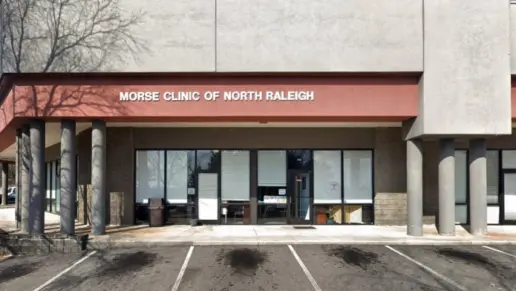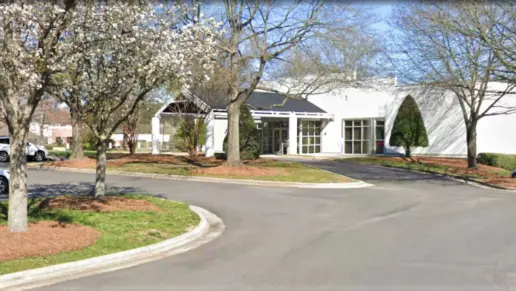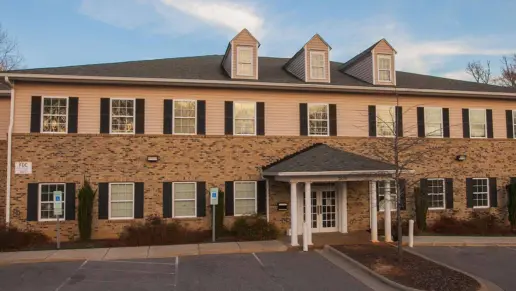About Carolina Outreach
Since 2003, Carolina Outreach has been helping adults, children and families with substance abuse problems and co-occurring mental health issues in Charlotte, North Carolina. This behavioral healthcare center is committed to promoting physical and emotional wellbeing. If you enroll at this center, you can expect to enjoy a range of drug and alcohol addiction recovery services. Services include healing outpatient care, intensive outpatient treatment, continuing care and aftercare.
Many have enjoyed their time in the center’s basic outpatient substance abuse treatment program. This program is known to provide group therapy sessions twice weekly. If you enroll, you’ll attend 16 sessions, each 90 minutes long. Although this might seem like a lengthy period of time, you will be surrounded by others with similar challenges to overcome, so you won’t ever feel alone during recovery.
What’s also convenient is that those who need a little extra help can receive it after outpatient treatment with the center’s continuing care and aftercare programs. If you speak to past patients, you’ll find that the continuing care program is instrumental in assisting with relapse prevention skills. This program supports group healing, and 16 90-minute sessions are offered.
You can also continue to hone your recovery skills and receive the support and accountability you need in the aftercare program. What’s more, regardless of which outpatient treatment pathway you undertake, you’ll undergo motivational interviewing, cognitive behavioral therapy, and 12 Step teaching. Depending on your needs, you’ll also receive case management services and individual therapy if you cope better recovering alone than as part of a collective.
Gallery

Location
Accepted Insurance
Other Forms of Payment
Private insurance refers to any kind of healthcare coverage that isn't from the state or federal government. This includes individual and family plans offered by an employer or purchased from the Insurance Marketplace. Every plan will have different requirements and out of pocket costs so be sure to get the full details before you start treatment.
Self-pay involves paying for treatment out of your own pocket. You can use savings or credit, get a personal loan, or receive help from family and friends to fund your treatment. If you don't have insurance or your insurance plan doesn't cover a specific program, self-pay can help ensure you still get the care you need.
Financial aid can take many forms. Centers may have grants or scholarships available to clients who meet eligibility requirements. Programs that receive SAMHSA grants may have financial aid available for those who need treatment as well. Grants and scholarships can help you pai for treatment without having to repay.
Medicare is a federal program that provides health insurance for those 65 and older. It also serves people under 65 with chronic and disabling health challenges. To use Medicare for addiction treatment you need to find a program that accepts Medicare and is in network with your plan. Out of pocket costs and preauthorization requirements vary, so always check with your provider.
Medicaid is a state based program that helps lower-income individuals and families pay for healthcare. Medicaid covers addiction treatment so those enrolled can use their coverage to pay for rehab. When a program accepts Medicaid the client often pays very little or nothing out of their own pocket.
Addiction Treatments
Levels of Care
Treatments
The goal of treatment for alcoholism is abstinence. Those with poor social support, poor motivation, or psychiatric disorders tend to relapse within a few years of treatment. For these people, success is measured by longer periods of abstinence, reduced use of alcohol, better health, and improved social functioning. Recovery and Maintenance are usually based on 12 step programs and AA meetings.
There are many types of drug rehab in North Carolina. To receive treatment for addiction, you can choose from many inpatient and outpatient programs. Often, participants start with detox and work through a full continuum of care that continues with ongoing support for long-term recovery.
Many of those suffering from addiction also suffer from mental or emotional illnesses like schizophrenia, bipolar disorder, depression, or anxiety disorders. Rehab and other substance abuse facilities treating those with a dual diagnosis or co-occurring disorder administer psychiatric treatment to address the person's mental health issue in addition to drug and alcohol rehabilitation.
A combined mental health and substance abuse rehab has the staff and resources available to handle individuals with both mental health and substance abuse issues. It can be challenging to determine where a specific symptom stems from (a mental health issue or an issue related to substance abuse), so mental health and substance abuse professionals are helpful in detangling symptoms and keeping treatment on track.
Opioid rehabs specialize in supporting those recovering from opioid addiction. They treat those suffering from addiction to illegal opioids like heroin, as well as prescription drugs like oxycodone. These centers typically combine both physical as well as mental and emotional support to help stop addiction. Physical support often includes medical detox and subsequent medical support (including medication), and mental support includes in-depth therapy to address the underlying causes of addiction.
Programs


Clinical Services
Cognitive Behavioral Therapy (CBT) is a form of treatment that focuses on examining the relationships between thoughts, feelings, and behaviors. By exploring patterns of thinking that lead to self-destructive actions and the beliefs that direct these thoughts, people with mental illness can modify their patterns of thinking to improve coping. CBT is a type of psychotherapy that is different from traditional psychodynamic psychotherapy in that the therapist and the patient will actively work together to help the patient recover from their mental illness. People who seek CBT can expect their therapist to be problem-focused, and goal-directed in addressing the challenging symptoms of mental illnesses. Because CBT is an active intervention, one can also expect to do homework or practice outside of sessions.
Dialectical Behavior Therapy (DBT) is a modified form of Cognitive Behavioral Therapy (CBT), a treatment designed to help people understand and ultimately affect the relationship between their thoughts, feelings, and behaviors. DBT is often used for individuals who struggle with self-harm behaviors, such as self-mutilation (cutting) and suicidal thoughts, urges, or attempts. It has been proven clinically effective for those who struggle with out-of-control emotions and mental health illnesses like Borderline Personality Disorder.
Group therapy is any therapeutic work that happens in a group (not one-on-one). There are a number of different group therapy modalities, including support groups, experiential therapy, psycho-education, and more. Group therapy involves treatment as well as processing interaction between group members.
In individual therapy, a patient meets one-on-one with a trained psychologist or counselor. Therapy is a pivotal part of effective substance abuse treatment, as it often covers root causes of addiction, including challenges faced by the patient in their social, family, and work/school life.
The goal of Trauma-Focused Cognitive Behavior Therapy (TF-CBT) is to help address the biopsychosocial needs of children with Post-traumatic Stress Disorder (PTSD) or other problems related to traumatic life experiences, and their parents or primary caregivers. TF-CBT is an evidence-based model of psychotherapy that combines trauma-sensitive interventions with cognitive behavioral therapy. Children and parents are provided knowledge and skills related to processing the trauma; managing distressing thoughts, feelings, and behaviors; and enhancing safety, parenting skills, and family communication.
Whether a marriage or other committed relationship, an intimate partnership is one of the most important aspects of a person's life. Drug and alcohol addiction affects both members of a couple in deep and meaningful ways, as does rehab and recovery. Couples therapy and other couples-focused treatment programs are significant parts of exploring triggers of addiction, as well as learning how to build healthy patterns to support ongoing sobriety.
Family Centered Treatment is part of Carolina Outreach’s continuum of care for at-risk children and their families. FCT is an evidence-based, in-home service that helps to preserve the family and prevent out-of-home placements. Parent-Child Interaction Therapy (PCIT) is an evidence-based treatment model backed by over 30 years of research. PCIT focuses on improving the quality of the parent-child relationship by changing parent-child interaction patterns. PCIT was developed for children ages 2–7 years with externalizing behavior disorders. In PCIT, parents are taught specific skills to establish or strengthen a nurturing and secure relationship with their child while encouraging pro-social behavior and discouraging negative behavior.
Amenities
-
Residential Setting
-
Private Rooms
Accreditations

The Commission on Accreditation of Rehabilitation Facilities (CARF) is a non-profit organization that specifically accredits rehab organizations. Founded in 1966, CARF's, mission is to help service providers like rehab facilities maintain high standards of care.
CARF Accreditation: Yes
Contact Information
5108 Reagan Drive
Suites 13 and 14
Charlotte, NC 28206



